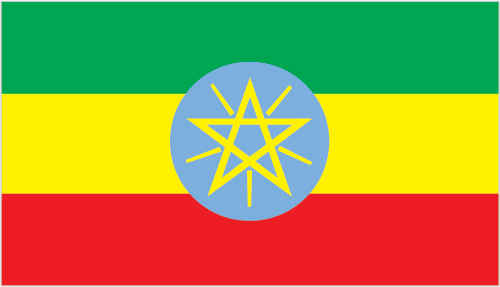
Source: World Bank
Meeting Etiquette
Greetings are formal and courteous.
Handshakes are somewhat prolonged and not especially firm.
They are always combined with strong, direct eye contact.
There is generally no touching between the sexes; however, if a foreign businesswoman extends her hand, a cosmopolitan Ethiopian may accept it to avoid causing her offense.
Never rush greeting; enquire about people’s families, health and work.
Government officials may be addressed as "Excellency" without using their name.
Wait to be invited before moving to a first name basis without the honorific title.
Business cards are given without formal ritual.
Present and receive business cards with the right hand only or with both hands.
Communication Style
Ethiopians can be very sensitive when it comes to communication. Since they have only recently begun working with foreigners in business situations they are still getting used to new ways of doing business and communicating.
As a general rule, they are humble and respect that quality in others. They generally speak in soft tones. Loud voices are seen as too aggressive. Ethiopians pride themselves on their eloquent speaking style and expect others to speak clearly and use metaphor, allusion, and witty innuendoes. They often use exaggerated phrases to emphasize a point.
As a rule, Ethiopians tend to be non-confrontational and offer what they believe is the expected response rather than say something that might embarrass another. Honour and dignity are crucial to Ethiopians and they will go out of their way to keep from doing something that could bring shame to another person. Therefore, it is important to treat your Ethiopian business colleagues with utmost professionalism and never do anything that would make them lose dignity and respect.
Business Meetings
Meeting schedules are not very rigid in Ethiopia. There may be an agenda, although it is not part of the local culture. If one is used, it functions as a guideline for the discussion and acts as a springboard to other related business topics.
Since relationships are extremely important, meetings start with extended social pleasantries. You will be offered tea or coffee and will be expected to ask questions about the other person and respond to questions about yourself.
Meetings seldom have a scheduled ending time since it is considered more important to complete the meeting satisfactorily than be slavishly tied to the clock. The meeting will end when everyone has had their say and the most senior Ethiopians decide that there is nothing left to be discussed.
Performing favours indicates friendship. Therefore, Ethiopians feel obliged to do something if asked by a friend. Since they generally only conduct business with people they consider friends, they have difficulty saying "no" to requests from business associates. This does not indicate that they will do what they have agreed to do, however.
Banks, post offices and telecommunications offices are open at least 8.30am to 11am and 1.30pm to 3.30pm weekdays and 8.3